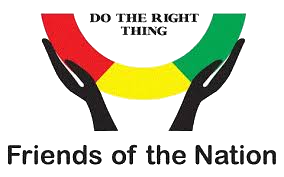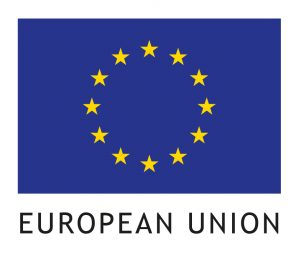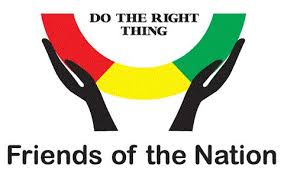Background
In Ghana, the governance of tenure in artisanal small-scale fisheries is very important especially in the case of the contribution of fisheries to the national development including food and nutrition security, employment, etc. Fishing communities and custodians of and fish landing and processing sites in Ghana are useful entry points for participatory development planning because they are the geographical space where the majority of actions take place to promote fishery-based livelihoods.
Ghana has over 330 marine fish landing sites with 2 major fishing harbour (Tema and Sekondi). So far Government has earmarked US$235 million budget for the construction of 10 additional Modern Coastal Fishing Harbours and Landing Sites in communities including: Teshie in the Greater Accra Region, Axim and Dixcove in the Western Region, Elmina, Winneba, Mumford, Senya-Bereku, Fetteh-Gomoah and Moree in the Central Region and Keta in the Volta Region. These government fishing harbour projects are also aimed at creating and maintaining a hygienic environment for the processing and handling of fish, preventing and minimizing post-harvest losses and adding value to the fish caught by artisanal fishermen.
However, the problem with the government projects are that they involve too much money and therefore cannot be done for all the landing sites. The result is that over 94% i.e. 310 of the remaining marine fish landing sites in Ghana are unsecured and under threat from various interests such as demands for hospitality/tourism facilities, urban settlements, industrial and other commercial ventures, etc. The nature of unsecured landing sites for fishing has provided opportunities for irresponsible appropriation, litigations and other issues that affects access to and use of such landing sites by local artisanal fishers in some of the communities. The implications for the future for many of the existing fishing communities is even worrying as interest, demand and competition for coastal beach front tourism and real estate development is increasing.
In addition, due to the huge budgets of the harbour construction, mechanism to generate income by levying fishers are used. This commercialization denies many poor fishers access to the facilities. Such fishers, who cannot access the harbour, have to move and land their fish in other communities but the distance traveled and the additional fuel used reduces their profits and makes them poorer. Furthermore, the women fish mongers and processors, who access the harbour also have to pay, reducing their meager profit margin, a situation that affects the women, their children and the other dependents they support. In the end, such harbour construction projects do not benefit the poor smallholder fishers.
Unsecured fish landing and processing sites could be secured through low cost but effective initiatives including application and mainstreaming of Voluntary Guidelines on the Responsible Governance of Tenure of Land, Fisheries and Forests (VGGT) principles and SSF Guidelines into the tenure governance processes for small-scale fisheries.
The project applies FAO’s globally accepted VGGT principles as a crucial element in determining if and how people, communities and others are able to acquire rights, and associated duties, to use and control land, fisheries and forests.
Objective
- To build national level capacities among policy makers, institutions and relevant stakeholders to improve governance of tenure in national fisheries policy formulation and implementation.
Activities Implemented and Results
- MEDIA WORKSHOP ON VGGT AND LANDING SITE SECURING was organized to strengthen the capacity, of 36 national Journalists with 15 females (representing 41.6%) in Ghana, towards improving media reporting on the Voluntary Guidelines on the Responsible Governance of Tenure of Land, Fisheries and Forests in the Context of National Food Security (VGGT) with application to fish landing site securing. Beneficiaries of the media capacity workshop were news editors, news desk reporters, political talk show host, investigative journalists, assignment editors, etc. Beneficiaries explained after the workshop that their understanding and appreciation of VGGT had improved, their capacity have been strengthened and would improve quality of stories on governance of tenure of fish landing sites securing.
- Video documentary was produced to support documentation and communication to inform and gain the collaboration of stakeholders for reforms in landing sites securing with VGGT. The evidence-based video documentary produced by the action was used for stakeholder sensitization and engagement with policy makers as the key engagement tools that triggered policy dialogue and stakeholder reflection. Importantly, the video documentary captured results, achievements and actions implemented for the securing of the landing sites by the FoN and the FBB project for communication with relevant target audiences. The video also showcased the European Union, FAO and FoN’s contribution to promoting sustainable fisheries governance, food security and nutrition in Ghana.
- NATIONAL MULTI-STAKEHOLDER POLICY DIALOGUE was organized with the theme: Securing fish landing and processing sites for sustainable social and economic development, food security and eradication of poverty. 75 Participants participated in the dialogue and were from; Policy Makers, Government institutions, community leaders, traditional authorities, fishers, Academia, CSOs, Private sector and media. The policy dialogue created the platform to collate policy recommendations to contribute to improve governance of tenure in national fisheries policy formulation and implementation. The policy dialogue also built national level capacities among policy makers, institutions and relevant stakeholders to appreciate the Voluntary Guidelines on the Responsible Governance of Tenure of Land, Fisheries and Forests in the Context of National Food Security (VGGT) and the Voluntary Guidelines for Securing Sustainable Small-Scale Fisheries in the Context of Food Security and Poverty Eradication (SSF-Guidelines).
- CAPACITY STRENGTHENING WORKSHOP was organized for stakeholders including fishing communities, government institutions, traditional authorities, CSOs and media, to any pics develop their capacity in responsible governance of tenure using VGGT and SSF-Guidelines approaches to secure fish landing and processing sites for small scale fishers. The workshop provided the platform to strengthen the capacity of participants from the stakeholder institutions to appreciate VGGT and SSF-Guidelines issues in relation to securing of fish landing sites. The workshop provided information on improving the management and protection of fish landing and processing sites in the face of intense pressure for land-use changes along the coast of Ghana. The workshop also provided the platform to strengthen the capacity of stakeholders to support advocacy for policy reforms on fish landing site tenure. and share with them information, lessons learned, experiences, knowledge gained and achievements of the Far Ban Bo (FBB) projects on securing and documentation of fish landing sites.
- Organized stakeholders advocacy and sensitization workshop support, protect and defend the tenure rights of small-scale fishers and fish. This activity contributed to create informed constituencies for building national level capacities among relevant stakeholders towards improved governance of tenure of fish landing sites in national fisheries policy formulation and implementation.
- The action documented and dessiminated success stories, lessons learnt, experiences and knowledge gained by FoN using the principles of VGGT to secure 5- fish landing sites in the coastal regions of Ghana.
Lessons Learnt:
- The Action established that, the governance of tenure in artisanal small-scale fisheries in Ghana is very important especially in the case that the fisheries contribute immensely to the national development including food and nutrition security, employment, etc.
Read the FINAL REPORT
Partners



